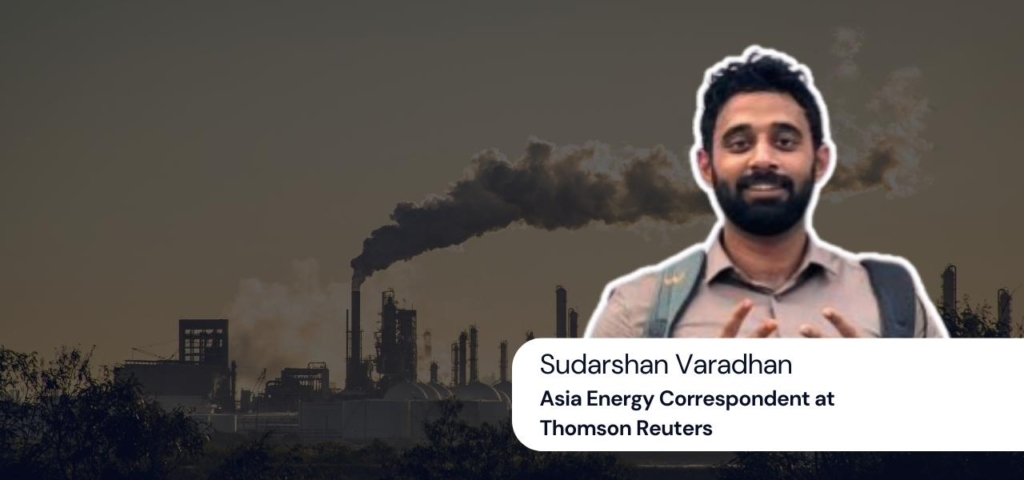The Russia-Ukraine war has cast a long shadow over the global energy landscape, reshaping the geopolitics of energy and forcing countries to reconsider their energy strategies. In a recent conversation between Sandeep Pai and Sudarshan Varadhan, the intricate dynamics of this evolving energy scenario were dissected. From oil and gas to coal and renewable energy, the repercussions of this geopolitical crisis have been far-reaching.

Russia’s Dominance in European Energy
Before the war, a substantial portion of Europe’s energy needs were met by Russia, with estimates suggesting that approximately 35% of Europe’s energy came from Russian sources. However, with the onset of war and the subsequent economic sanctions imposed on Russia, these energy flows were abruptly disrupted. This shift posed significant challenges to both Russia, a major oil and gas producer, and Europe, a major energy consumer.
The Global Impact on Energy Prices
The immediate aftermath of the Russia-Ukraine war was marked by a surge in energy prices, particularly for gas, oil, and coal. This sudden spike in energy costs prompted a reevaluation of energy diversity, moving beyond the focus on energy transition alone. Energy diversity, in this context, emphasizes the importance of accessing various energy sources to mitigate geopolitical and socioeconomic risks.
Europe’s Return to Coal
One of the most striking consequences of the Russia-Ukraine war was Europe’s renewed dependence on coal. Despite prior commitments to reduce coal usage, Europe saw a rapid resurgence in coal consumption. This surprising trend was especially noticeable in the first five months after the war began, with Europe witnessing the fastest growth in coal usage among major regions.
The Coal Price Surge
The increased demand for coal in Europe had a cascading effect on global coal prices. South Africa, traditionally a supplier to South Asian markets like India and Pakistan, redirected its coal exports to Europe, selling at elevated prices. This sudden surge in demand for coal also led to unexpected consequences: countries previously considered uneconomical for coal mining, like Tanzania and Madagascar, began opening coal mines to meet the rising demand.
Short-Term vs. Long-Term Trends
While the immediate response to the energy crisis favored coal and other fossil fuels, it’s important to distinguish between short-term reactions and long-term trends. Economics, rather than environmental considerations or global goodwill, primarily influenced these short-term shifts. However, it’s expected that as technological advancements continue and the economics of renewable energy become more compelling, the world will move toward a cleaner and more sustainable energy landscape.
The Role of Fossil Fuel Lobbies
The energy crisis temporarily bolstered the fossil fuel industry and emboldened their presence in energy discussions. However, this resurgence is unlikely to dictate long-term energy policies, as the global community increasingly recognizes the importance of transitioning to cleaner energy sources.
Energy Transition and the Importance of Renewable Energy
Despite the temporary resurgence of coal and other fossil fuels, the global shift towards renewable energy remains an undeniable trend. Countries are recognizing that renewable energy offers energy security and insulation from global energy shocks, making it a critical component of their energy strategies.
South Asia’s Energy Dilemma
South Asian countries, faced with unique energy challenges, are also grappling with the question of whether to return to coal. Pakistan, already committed to a coal-intensive strategy, is moving back towards domestic coal production. Bangladesh, while heavily reliant on natural gas, is considering coal as a cost-effective alternative to address energy shortages. Vietnam is putting an emphasis on liquefied natural gas (LNG) but remains uncertain due to fluctuating global gas prices. Malaysia and Indonesia are already substantial coal users, and their energy transitions will significantly impact the regional coal landscape.
Conclusion
The Russia-Ukraine war has had a profound impact on the global energy landscape, prompting short-term shifts toward coal and fossil fuels in response to energy security concerns. However, the long-term trend remains clear: the world is inexorably moving toward cleaner and more sustainable energy solutions, driven by economics, energy diversity, and a growing awareness of the need to combat climate change. As renewable energy technologies advance and global energy policies evolve, the energy transition will continue to shape our world’s energy future, with coal playing a diminishing role on the global stage.
(Access the complete interview by tuning in to the TIEH podcast available on our website and other major podcast platforms.)


